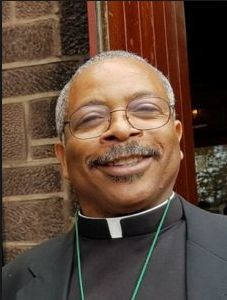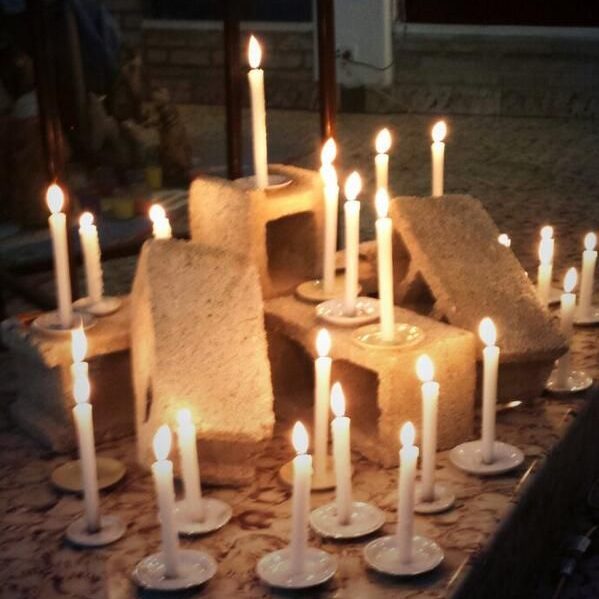On Monday we posted an opinion piece from Episcopal priest and blogger, Mark Harris. Here, Pierre-Andre H. Duvert, a priest serving in the Bronx, responds to some of Mark’s statements.

Dear Fr. Harris,
In your summary you made several assertions. In what follows, I intend to present a response to each conclusion.
First, you stated,
“The Court of Review has acted like a grand jury, finding credible grounds for considering the objections raised against the election. However, because there is no appeal, but only the report, these findings effectively argue for taking the franchise away from the electors in Haiti.”
Thank God for providing us with a process that protects the right of the oppressed! If it were not for that process, those who are being abused would continue to suffer without being heard. The church is called to serve as God’s liberating agent. Unfortunately, the Episcopal Diocese of Haiti, through its leadership, has been functioning as an oppressive force.
Second, you noted,
“The Court of Review, rather than the objectors, makes demands that there be an investigation of compliance with the Covenant between the Presiding Bishop, the Bishop Diocesan, the Bishop Suffragan and the Standing Committee of the Diocese of Haiti. This seems to me to be outside their purview.”
Actually, the covenant was supposed to create an atmosphere conducive to reconciliation and peace. Furthermore, the covenant was intended to lay the foundation for a fair and just election of a coadjutor. Before the covenant, the diocese was divided into two groups: those who aligned themselves with the diocesan bishop, and those who stood against corruption and for a renewal of the church. The covenant called for the formation of committees that included clergy from both camps to heal the division and shape a better future. Unfortunately, the diocesan disregarded the spirit of the covenant and retained full control of the committees. As a result, they were able to control the outcome of the election.
Third, you noted, that
“The Court of Review has considered the conflict as a “party” conflict, rather than a conflict between ecclesiastical authority and those who would reject such authority. The struggles in the Diocese of Haiti are intimately bound up with the matter of the ecclesiastical authority of the Bishop. The Court apparently has no sympathy for any such read.”
In reality, the conflict was not about ecclesiastical authority but about fighting the good fight for the church to function as light in a country embedded in corruption. Our Lord reminds us that a salt that has lost its saltiness is good for nothing. The Episcopal Church of Haiti has reached a point where it lost its saltiness. The corruption has been so widespread in the diocese and especially with the diocesan and his clan that the following notice became necessary:
To:
The Standing Committee of the Diocese of Haiti
The Secretary of the Convention of the Diocese of Haiti The Ecclesiastical Authority of every Diocese of the Church
The Recorder of Ordinations
The Office of Transition Ministry
The Secretary of the House of Bishops
The Archbishops, Metropolitans, and Presiding Bishops of the Churches in Communion with this Church
NOTICE OF ACCORD
Notice is hereby given that I have reached an Accord with the Rt. Jean Zaché Duracin, Bishop of the Diocese of Haiti, which was approved by the Disciplinary Board for Bishops on April 6, 2017, and took effect on that date. The Accord imposes on Bishop Duracin certain obligations in the exercise of his episcopate as a result of allegations of facts that would constitute one or more breaches of the Standards of Conduct under (l) Canon IV.4(1)(h)(6) (Conduct Involving Dishonesty, Fraud, Deceit or Misrepresentation); (2) Canon IV.4.1 (h)(8) (Conduct Unbecoming a Member of the Clergy); (3) Canon IV.4.1 (c) (Failure to Abide by the Promises and Vows Made When Ordained); and (4) Canon IV.4.1 (e) (Failure to “safeguard the property and funds of the Church and Community”).
Dated: May / 7 , 2017
The Most Rev. Michael Bruce Curry
XXVII Presiding Bishop
Fourth you also remarked that,
“The possibilities are great that the Report of the Court of Review will result in punitive action by the Presiding Bishop and a crisis in leadership in the Diocese. Already there are muttering about a “provisional bishop” for the diocese and the specter of the return of Episcopal leadership by non-Haitian missionary appointment, if only for a “season.” Such a move will be seen, much as the occupation by the US in the past, as an intervention that smacks of paternalism. It would be a solution that also assumes the Diocese is not able to function as a Diocese, with its Standing Committee as ecclesiastical authority. Such an assumption is itself a continuation of the “poor Haiti” syndrome, often voiced in circles that continue the myth that Haiti cannot handle its own affairs.”
It seems to me that you are not well acquainted with the structures and polity of the Episcopal Church of which the diocese of Haiti is a branch. Recently, there have been provisional bishops in Puerto Rico, South Carolina, Fort Worth, San Joaquin, and Lexington. As you can see, the appointment of a provisional bishop is part of a process that has been put in place to provide pastoral and Episcopal leadership in any diocese of our Church in times of crisis. This has nothing to do with occupation or colonialism.
As much as you seem to be decrying colonialism, your interference in the affairs of the diocese of Haiti and your desire to be the voice for the poor Haitians give the impression that you regard yourself as the great savior who must come to our rescue. Whereas the appointment of a provisional bishop is something that has been put in place by the church, your continued interference and presentation of inaccuracies convey one message: the Great European Hope must save the poor Haitians by all means necessary.
In conclusion, I need to let you know that Haiti needs a new beginning. The church in Haiti cannot succeed unless a provisional bishop is appointed and empowered to act as a healer and mediator. For God’s sake, stay out and grant the church a chance to be the church and the light of our society.
The Rev. Pierre-Andre H. Duvert, PhD, Dmin., STM, M.Div.
Rector, St. Luke’s Episcopal Church
777 East 222nd Street, Bronx, New York 10467
The Rev. Pierre-Andre H. Duvert is Rector of St Luke’s Episcopal Church in the Bronx and served as a Deputy at General Convention for the diocese of New York.
image: A memorial for students who died in the Haiti earthquake. from Sisters of St Margaret on Pinterest

